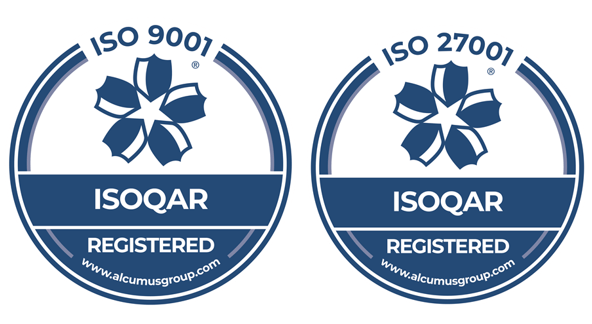About Scrum
Scrum is an Agile project management framework which we have been using with great success on both internal and client projects for some time now. Focused around regular feedback iterations and responsiveness to change, Scrum provides a structure for Lean software development, which brings many benefits including heightened flexibility and risk reduction. At Box UK we are striving to spread this expertise across the company so we can continue to provide high-performance delivery and pass on the advantages of being more Agile to our clients.
ScrumMaster training
As part of Box UK’s continued investment in Agile practices, eight members of the Box UK team recently participated in a two-day ScrumMaster training session led by Scrum coach Paul Goddard. Staff members on the course had varying levels of experience with Agile and Scrum, ranging from moderate through to good knowledge of theory but less so in practice. Ultimately, the goal was to increase the number of ScrumMasters in the company.
Starting with an overview of Scrum, Paul took us through the lifecycle of a typical project, dealing with each different component – how Scrum principles are used, what/who is involved, and best practice techniques. The main message immediately was that this session was very much the start of a ‘journey’ – that being Agile is a continuing work in progress which evolves as your business develops, and is as much about changing mind-sets as actual working practices. The series of interactive exercises, visuals and discussions accompanying the training encouraged collaborative working – something so key to Agile success – and made the information accessible to all.
It was the practical tasks during the days that made the learning effective and memorable. Often in office training, the ‘game exercises’ that are carried out can feel arbitrary and admittedly even a little inane – these however, were the complete opposite. They served a real purpose to provide examples of Scrum techniques and, crucially, situations that enabled us to see where and how these Scrum ideologies could be practically applied to great effect within the workplace
Streamlining processes
Some of the best exercises were surprisingly hands on – for example, in one instance we had to get together as one large team to construct a manufacturing process whereby a small rugby ball had to pass through each team member’s hands without being dropped, eventually becoming a ready-for-market “product”. We had to estimate how many perfect rugby balls we could produce in a two minute sprint, carry out the sprint itself and then determine how we could improve/increase our productivity for the next sprint.
This task was fascinating. It demonstrated how, generally, teams can over-think and over-complicate ideas for improvement or even unintentionally waste time deliberating without really achieving much. Scrum techniques encourage proactivity, with people adapting quickly to change rather than spending time pondering and discussing. It also displayed practically how estimating can be difficult, and the importance of teamwork, regular feedback and keeping the communication going.
Timeboxing our ‘planning/discussion’ phases was absolutely paramount – being disciplined helps keep the focus of the team strong as well keeping individuals proactive. Applying this is key in Scrum to maintain efficiency and productivity so that schedules remain optimised for all-round business and client benefit. When you have a strict time frame, and keep to this, it really optimises the time that you do have.
Prioritising and estimating
Another exercise centred on prioritising tasks – a central component of planning a project. We were given a list of celebrities that we could choose to save from a sinking ship, and what might have initially seemed a trivial exercise to put these in priority order was actually quite enlightening; you quickly realise how everyone sees things differently. In the real world, I perhaps would prioritise a task very differently to my colleague next to me, who may have a perfectly valid reasoning behind their own thinking. Scrum focuses in on this team responsibility rather than the individual. Using celebrities for this exercise encouraged us to utilise different parts of our brain to take a fresh look at things, as well as think creatively in areas such as prioritising tasks.
We also looked at estimation – an area in project management that frequently proves extremely difficult. All too often in the workplace the challenges of creating accurate estimations have hampered projects and created legacy issues further down the line. Paul introduced us to ‘planning poker’, again a team exercise, where each person rates items/tasks and the outcomes are then discussed together (with estimations revealed simultaneously to prevent influence from other participants). Very low or very high estimates must be explained, encouraging teams to work together to gain consensus (different personalities bringing different outlooks and experiences) and ultimately deliver more accurate outcomes. Again, like all Scrum principles, it requires discipline and strict timeboxing for focus.
Visual aids
Visuals were used throughout the training and feedback from staff members showed how greatly these aided learning. Scrum as a whole is quite a ‘visual’ concept – for example, in the use of white boards to display each sprint’s to do/done progress. Employing visuals creates a very transparent way of working, as well as facilitating learning, awareness and fluidity in operations and development. It also fosters a sense of team goals and togetherness.
This became particularly clear in our training session when we considered product backlogs. Paul showed how these could be considered as icebergs, and how they should be broken down so that only the smallest tasks can ‘float’ to the top, allowing them to be managed more effectively. This is a valuable outlook for project managers and developers alike; coming to a collaborative sense of how perhaps a seemingly difficult piece of work is actually very manageable.
Key takeaways
Essentially, Scrum’s core values are customer-focused, emphasising quality working software, trust and collaboration. Regular feedback and reflection (carefully timeboxed of course!) enables teams to continually review their efficiency, as well as respond quickly and effectively to customer needs and, above all, improve service. This not only encourages effective, self-organising, empowered and happy teams, but also goes a long way to satisfy the customer.
My personal experience with the Agile approach (having worked at waterfall-focused organisations previously) has come from extensive learning and development at Box UK. What instantly fascinated me about Scrum (and Agile as a whole) is how simple the concepts are and yet, conversely, how these theories can also sometimes be perceived as too complicated to accept. Similar to how it is said diets don’t really work, and that rather a lifestyle change is required, adopting Agile is very much a wholesale change in thinking and your future workplace ‘lifestyle’. It’s an empowering process, where things can flow and adapt, instead of being stuck behind stagnant, slow processes and a barrage of documentation.
Agile is a way to improve your working practices for more efficiency and business gain. However, the benefits are even more far reaching. Agile continues to gain prominence in a web development industry that is ever-changing and expanding. By becoming Agile, you are adapting as the industry itself develops, and will not be left behind. Ultimately, you are improving working relationships with clients, enabling them just as much as yourselves. You can create an enjoyable, thriving, innovative workplace, and help to produce great things. Scrum essentially encourages trust in your team, trust in everyone. And we should, and can, trust in Scrum.
At Box UK we have a strong team of bespoke software consultants with more than two decades of bespoke software development experience, specialising in Agile consultancy and coaching services. If you’re interested in finding out more about how we can help you, contact us on +44 (0)20 7439 1900 or email info@boxuk.com.

